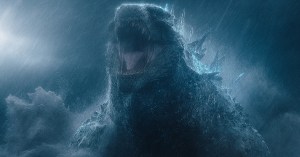Total Recall: Jean Reno’s Best Movies
We count down the best-reviewed work of the Alex Cross star.
Most American filmgoers didn’t know who he was prior to The Professional in 1994, but Jean Reno was already a César-nominated titan of French cinema at that point — and his filmography has only broadened in the nearly 20 years since, with comedies, dramas, and big-budget action pictures being added to the list along the way. With Reno making an appearance in this weekend’s Alex Cross, we decided now would be the perfect time to take a look back at some of his brightest critical highlights, and you know what that means: It’s time for Total Recall!
10. La Rafle
Films inspired by the Jewish Holocaust of World War II are a crowded genre, but writer/director Roselyne Bosch’s La Rafle stands out from the pack — not only is it inspired by a true story, but it features performances from some of the people who lived through the incident referenced in its title, the Rafle du Vel’ d’Hiv of 1942. Reliving the travails of French Jews who were arrested with the assistance of policemen working with the Nazis, La Rafle has some weighty stuff to deal with — and although some critics felt that Bosch played things a little too safe to achieve maximum impact, others were deeply moved. “Bosch is working in unabashed historical epic mode here, balancing individual stories with grand-scale awfulness effectively,” argued Tom Long of the Detroit News. “She never swerves for cheap sentiment, she just lays it all out.”
9. Mission: Impossible
After breaking through in The Professional, Reno started fielding offers from Hollywood, and by 1995, American filmgoers were seeing him in films like French Kiss — as well as Mission: Impossible, which found him playing a member of the secret team assembled by an on-the-run Ethan Hunt (Tom Cruise) to flush out a rogue agent (Jon Voight). Blending big-budget action set pieces with all the disguises, double-crosses, and cool gadgets that fans of the TV show could hope for, M:I proved a mission impossible not to accept for critics like Roger Ebert, who summed up its appeal succinctly: “Tom Cruise looks cool and holds our attention while doing neat things that we don’t quite understand.”
8. The Big Blue
France’s biggest box-office hit of the 1980s, The Big Blue follows the real-life relationship between a pair of competitive free divers (played by Reno and Jean-Marc Barr) whose childhood friendship fosters a bond that not even their grown-up competition can break. While a number of critics found the movie’s feel-good melodrama a little hard to take, audiences certainly responded to it — and even if the fictionalized exploits cooked up by writer/director Luc Besson didn’t really correspond with the true story that inspired them, they resonated with critics like Ian Nathan of Empire, who wrote, “This simple tale of love, friendship and the sea lingers in the mind long after the final credits.”
7. The Crimson Rivers
Reno has attracted a lot of attention while playing characters on the wrong side of the law, but for 2000’s The Crimson Rivers, he was one of the good guys — an upstanding cop whose investigation into a brutal murder leads him to a faraway town, and into the path of a separate case being followed by a younger officer (Vincent Cassel). Writer/director Mathieu Kassovitz delved unflinchingly into the story’s gory details — but unlike a fair number of grisly cop thrillers, Rivers didn’t neglect to develop a cast of interesting characters to support all the mystery and horror. And the cast was more than up for the challenge, according to critics like Mick LaSalle of the San Francisco Chronicle, who observed, “Some actors are just automatically the moral locus of every scene they’re in. They’re the major movie stars, and Reno is one of those.”
6. Ronin
Action thrillers set in Europe are a dime a dozen, but 1998’s Ronin boasts a better pedigree than most: Its script was co-written by David Mamet (working under a pseudonym) and it was helmed by director John Frankenheimer (The Manchurian Candidate), working with a cast that included Robert De Niro, Stellan Skarsgard, and — naturally — Jean Reno. Filled with plenty of car chases, double-crosses, and exotic locales, Ronin drummed up $70 million at the box office while earning positive reviews from critics like Variety’s Todd McCarthy, who called it “a pleasurable throwback to the sort of gritty, low-tech international thriller that was a staple of the 1960s.”
5. Margaret
Long before it arrived in theaters, Kenneth Lonergan’s Margaret was a source of widespread fascination — not only for film fans who waited patiently while it moved slowly through post-production, but also for the lawyers involved in the multiple lawsuits sparked by Lonergan’s years-long struggle to settle on a final cut that both he and the studio could agree upon. All’s well that ends well, however, and when all two and a half hours of Margaret finally debuted in late September of 2011, a good many critics deemed it well worth the wait, heaping praise upon the tale of a Manhattan teenager (Anna Paquin) who becomes embroiled in a lawsuit against a bus driver (Mark Ruffalo). Part of an attention-getting supporting cast that included Allison Janney, Matt Damon, and Matthew Broderick, Reno helped round out what Moira MacDonald of the Seattle Times called “Messy but masterful; a sprawling portrait of what it means to be a bright young woman who’s realizing that the world isn’t the warm bath of acceptance that her privileged life would indicate.”
4. Flushed Away
With a voice cast led by Hugh Jackman, Kate Winslet, and Ian McKellen, the marketing muscle of DreamWorks Animation, and animation courtesy of the geniuses at Aardman, Flushed Away should have been a Shrek-sized hit. Alas, audiences just weren’t terribly interested in the story of a mouse (Jackman) who is flushed down the toilet by a vengeful rat and ends up tangling with an amphibious sewer overlord (McKellen) and his French cousin (Reno). It didn’t live up to expectations, but for a ‘toon with such strong British themes (including a subplot involving the World Cup), it did fairly well with American audiences — and though Aardman’s experiences with DreamWorks on the movie led to a split between the studios, the end result was still charming enough to earn a 73 percent Tomatometer rating, thanks to positive reviews from critics like the New York Times’ A.O. Scott, who enjoyed its “exuberant and infectious silliness.”
3. Léon: The Professional
It’s his mug on the poster — and it’s his ruthlessness as a hitman that gives the movie its name — but Reno had The Professional more or less stolen out from under him by the 12-year-old Natalie Portman, who played a young orphan who’s seen her crack-dealing family mowed down by vengeful DEA agents (and who then goes on to pursue a terribly inappropriate relationship with Reno’s character). Add a borderline insane performance from Gary Oldman into the mix, and The Professional could easily have skidded into B-movie territory; in fact, a few critics felt that’s exactly where it belonged. The majority, however, were too entranced by the sweetly deadly chemistry between Portman and Reno to notice the film’s flaws. As Time’s Richard Schickel wrote, “The bonding of Mathilda and Leon may be among the strangest in the long, tiresome history of odd-couple movies.”
2. La Femme Nikita
After working together on The Big Blue and Subway, Reno and Luc Besson reunited for one of their more successful (and influential) collaborations: 1990’s Nikita (La Femme Nikita), starring Annie Parillaud as a sociopathic young woman whose arrest for her role in a violent robbery leads to employment in a secret government agency and training as a lethal assassin. Reno’s role, as a fellow agent who’s sent to help Nikita clean up a bungled mission, was far from the biggest of his career — but it helped set up his breakout performance in The Professional four years later, and made him a part of what was to become a durable Transatlantic franchise that would eventually spin off an American remake and two TV series. As Film Threat’s Felix Vasquez Jr. put it, “This Besson thriller sparked many a wannabe, but it’s clear this film stands on its own two feet — and kicks you in the head.”
1. Hotel Rwanda
This will be a controversial choice for many readers, seeing as how Reno isn’t in Hotel Rwanda for more than a few minutes — but we limit our choices for these lists to films that have been released in the U.S., and while he’s made a ton of movies overseas, he’s had less of a presence Stateside, so we made more room for smaller roles than we ordinarily might have. In any case, Reno’s appearance as Sabena Airlines President Mr. Tillens, while brief (and uncredited), provides a powerful moment in a film full of them; this fictionalized dramatization of events taking place during the Rwandan genocide earned multiple Academy Award nominations (including Best Actor for Don Cheadle), as well as copious praise from critics like Eric Harrison of the Houston Chronicle, who wrote, “Because of the subject matter, this feels like one of those films you see because it’s good for you. But it also is an extraordinarily moving drama.”
In case you were wondering, here are Reno’s top 10 movies according RT users’ scores:
1. Léon: The Professional — 94%
2. Hotel Rwanda — 94%
3. The Big Blue — 91%
4. The Tiger and the Snow — 83%
5. La Femme Nikita — 80%
6. Ronin — 76%
7. For Roseanna — 73%
8. Mission: Impossible — 70%
9. French Kiss — 69%
10. The Crimson Rivers — 69%
Take a look through Reno’s complete filmography, as well as the rest of our Total Recall archives. And don’t forget to check out the reviews for Alex Cross.






